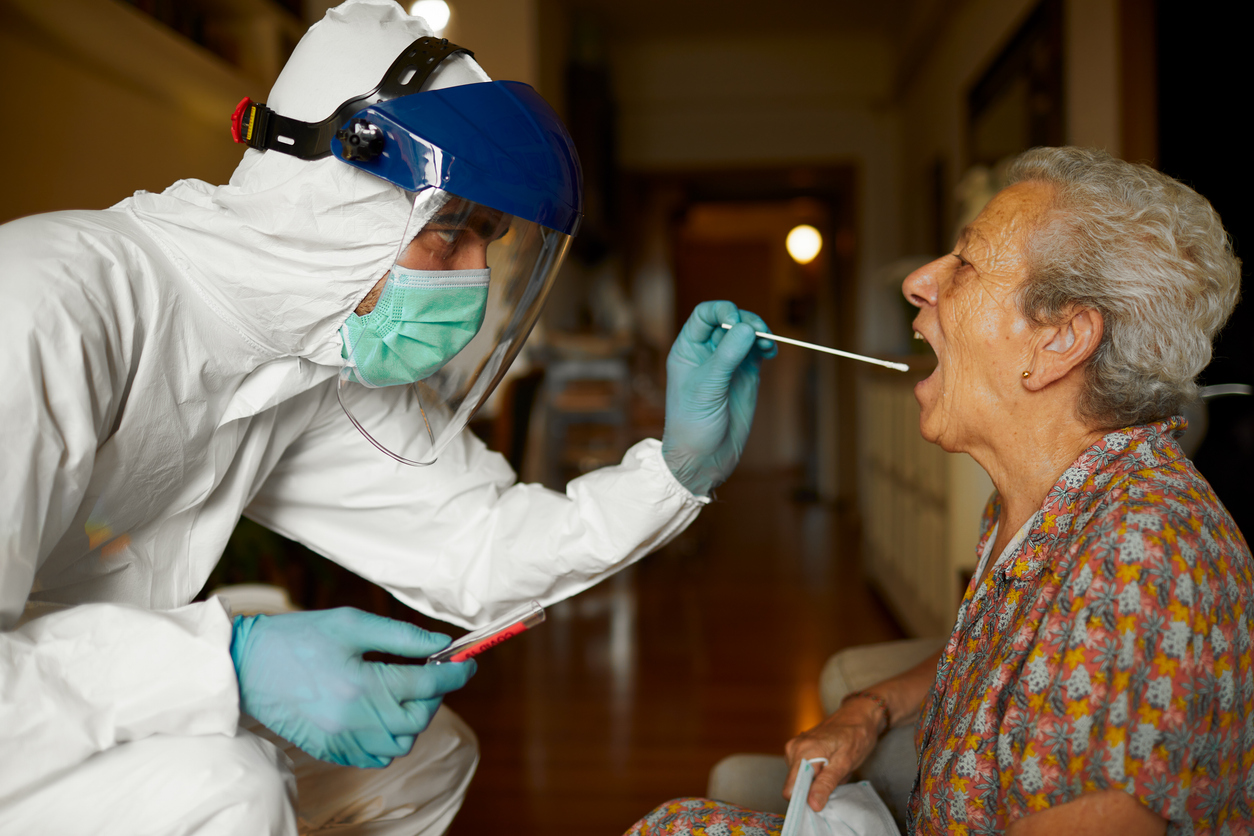How to Become an Infection Control Practitioner
Written by:
University of Tulsa
• Sep 9, 2024

The COVID-19 pandemic made clear just how disruptive an infectious disease outbreak can be. While global pandemics on that scale are mercifully rare, the reality is that infectious diseases — ranging from influenza to sexually transmitted infections — can easily spread through clinical facilities, schools, or communities at any time. Predicting, controlling, and mediating these outbreaks is a top priority for public health professionals.
For those interested in being on the front lines of outbreak control, one career to consider is infection control practitioner. This role is crucial for keeping communities safe and requires both the right training as well as significant field experience.
What Is an Infection Control Practitioner?
An infection control practitioner is a clinician and public health professional (typically a registered nurse, epidemiologist, or physician) who monitors, investigates, and works to curb the spread of dangerous transmissible illnesses. With a background in nursing, an infection control practitioner can develop plans to stop infectious diseases from spreading before they start, and also establish rapid response plans for outbreaks that do occur. While the role focuses on prevention, it also ensures leadership during times of crisis.
Working in a hospital or community clinic setting, a professional in this role may also provide their colleagues with training and protocols to ensure their patients do not contract or transmit infections.
What Does an Infection Control Practitioner Do?
Infection control practitioners have a wide range of responsibilities, including:
- Developing and executing infection control protocols
- Monitoring compliance with hygiene practices
- Educating clinical staff on infection control measures
- Counseling patients on how to minimize their risk of infection
Ultimately, these global health nursing professionals play an essential role in safeguarding patients, other clinical staff, and the community as a whole.
Steps to Become an Infection Control Practitioner
To succeed in this important public health position, it’s crucial that infection control practitioners develop not only clinical skills but also a rigorous knowledge of how infectious diseases spread. This means cultivating the right competencies through education as well as practical experience.
1. Obtain an Undergraduate Education
An undergraduate degree can lay the necessary foundation for a career in infection control. A common option is to study nursing, though a degree in microbiology or a related field may also be relevant.
2. Become a Registered Nurse
One way to fulfill the clinical duties associated with the position is to obtain a nursing license. Becoming an RN requires passing the NCLEX-RN, as administered by the relevant state’s nursing board.
3. Seek Experience
Securing an infection control practitioner position usually requires somewhere between three and five years of practical nursing experience. Experience in epidemiology, disease prevention, or a related field of nursing is preferable.
4. Gain an Advanced Degree
While advanced degrees are not always mandatory for this position, they can provide a higher level of leadership skill, and open the door to higher-paying roles and greater responsibility. A Master of Science in Nursing (MSN) can be especially helpful, particularly when paired with a relevant concentration, like The University of Tulsa’s Public Health Global Vision track.
5. Focus on Key Skills
Through this combination of education and practical experience, it is important to focus on the core skills associated with infection control. These include organization, analytical thinking, communication, and statistical literacy.
Infection Control Practitioner Salary and Job Outlook
For those who are drawn to public health roles, it’s natural to wonder about earning potential and long-term career prospects.
Salary
The median annual salary for nurses working in infection control was around $80,950 as of July 2024, according to Payscale. A number of factors can affect salary ranges, including years of experience, level of education, and geographic location. For nurse practitioners — RNs who have gone on to earn an MSN and pass a further credentialing exam — the median annual salary was $126,260 in 2024, according to the U.S. Bureau of Labor Statistics (BLS).
Job Outlook
What is the public health nursing career outlook? While the BLS doesn’t track infection control practitioners as a separate category, it predicts that positions for registered nurses will increase by 6% between 2022 and 2032, twice as fast as the average for all professions. For nurse practitioners, positions are expected to increase by 38% in the same period. This suggests plenty of career opportunities for clinical nursing roles, including infection control practitioners.
Pursue a Path in Public Health Nursing
Nurses play a vital role in promoting public health outcomes, including the management of infectious disease outbreaks. One way to prepare for this path is to seek a well-rounded education in health care.
The University of Tulsa’s online Master of Science in Nursing program provides the skills needed for success as an infectious disease specialist, including exposure to core concepts in health statistics, epidemiology, and more. The program also offers a range of specialization tracks that can be helpful for infection control careers, like the Public Health Global Vision concentration, which offers courses in population health and epidemiology.
Find out how TU can help you make a difference as an infection control practitioner.
Recommended Readings
MSN vs. RN: Why Earn an Advanced Degree?
How Global Health Nursing Supports Population Health
Common Nurse Specialties to Choose From
Sources:
Johnson & Johnson, Infection Control Nurse Career Guide
Payscale, Average Nurse Infection Control Salary
U.S. Bureau of Labor Statistics, Nurse Anesthetists, Nurse Midwives, and Nurse Practitioners
U.S. Bureau of Labor Statistics, Registered Nurses
World Health Organization, Infection Prevention and Control
ZipRecruiter, What Is an Infection Preventionist and How to Become One


